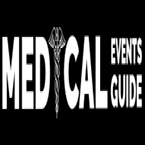Sessions and Tracks
Major Depressive Disorder (MDD) is a complex and debilitating psychiatric condition characterized by persistent feelings of sadness, hopelessness, and a loss of interest or pleasure in nearly all activities. It affects how individuals think, feel, and behave, often interfering significantly with daily functioning and quality of life. MDD is one of the most prevalent mental health disorders globally, impacting over 280 million people according to the World Health Organization. While occasional sadness is a natural part of the human experience, MDD involves symptoms that persist for at least two weeks and are severe enough to impair social, occupational, or other important areas of functioning. The etiology of MDD is multifactorial, involving a complex interplay of genetic, biological, environmental, and psychological factors. Neurochemical imbalances, particularly involving neurotransmitters like serotonin, dopamine, and norepinephrine, are widely recognized as contributing factors. Brain imaging studies have also shown structural and functional changes in areas such as the hippocampus, amygdala, and prefrontal cortex in individuals with depression. The clinical presentation of MDD can vary widely among individuals. Common symptoms include depressed mood, anhedonia (loss of interest or pleasure), fatigue, changes in appetite or weight, sleep disturbances (insomnia or hypersomnia), feelings of worthlessness or excessive guilt, difficulty concentrating, and recurrent thoughts of death or suicide.
Generalized Anxiety Disorder (GAD) is a chronic and pervasive mental health condition characterized by excessive, uncontrollable worry and anxiety about various aspects of daily life, such as health, work, finances, and interpersonal relationships. Unlike normal worry, which is typically tied to specific stressors and is temporary, GAD involves persistent anxiety that lasts for six months or more and significantly impairs social, occupational, or other important areas of functioning. People with GAD often anticipate disaster or dwell on worst-case scenarios, even when there is little or no reason to worry. This excessive worry can be accompanied by physical symptoms such as restlessness, fatigue, muscle tension, irritability, sleep disturbances, and difficulty concentrating. The constant mental and physical strain can lead to significant emotional distress and reduced quality of life. The exact cause of GAD is not fully understood, but it is believed to result from a combination of biological, psychological, and environmental factors. Genetic predisposition plays a role, as individuals with a family history of anxiety disorders are more likely to develop GAD. Neurobiological factors, including dysregulation of neurotransmitters like serotonin, gamma-aminobutyric acid (GABA), and norepinephrine, are implicated in the pathophysiology of the disorder.
The neurobiology of stress refers to the complex network of brain structures, hormones, and neurotransmitters involved in the body's response to stressors, whether physical, emotional, or environmental. Stress is a natural and adaptive response that helps individuals react to challenges or threats, but when stress becomes chronic or overwhelming, it can lead to significant physiological and psychological consequences. At the core of the stress response is the hypothalamic-pituitary-adrenal (HPA) axis, a central stress pathway. When a stressor is perceived, the hypothalamus releases corticotropin-releasing hormone (CRH), which signals the pituitary gland to secrete adrenocorticotropic hormone (ACTH). ACTH then stimulates the adrenal glands to produce cortisol, the body’s primary stress hormone. Cortisol mobilizes energy reserves, increases glucose availability, and modulates immune function—helpful in short bursts but potentially harmful when levels remain elevated over time. This involves the rapid release of adrenaline (epinephrine) and norepinephrine, resulting in increased heart rate, blood pressure, and respiration—physiological changes that prepare the body to respond to perceived danger. Once the threat is removed, the parasympathetic nervous system works to return the body to its baseline state. However, in chronic stress conditions, this balance is disrupted, leading to prolonged activation of stress responses and impairments in recovery.
Cognitive Behavioral Therapy (CBT) is a widely practiced, evidence-based form of psychotherapy that focuses on identifying, understanding, and changing negative thought patterns and behaviors. It is based on the fundamental principle that our thoughts, feelings, and behaviors are interconnected, and that modifying distorted thinking can lead to improvements in emotional regulation and behavior. Originally developed by Aaron T. Beck in the 1960s, CBT has since evolved into a versatile and structured approach that has been proven effective for a wide range of psychological conditions, including depression, anxiety disorders, post-traumatic stress disorder (PTSD), obsessive-compulsive disorder (OCD), and eating disorders. CBT is typically a short-term, goal-oriented treatment, usually lasting between 6 to 20 sessions, depending on the individual’s condition and therapeutic goals. The therapy process is highly collaborative, involving active participation from both the therapist and the patient. One of the key strengths of CBT lies in its structured format. Therapy sessions often include setting an agenda, reviewing homework assignments, teaching specific cognitive or behavioral skills, and practicing them both in-session and outside of therapy. Behavioral techniques, such as exposure therapy for anxiety and systematic desensitization, help patients confront fears gradually and safely, thereby reducing avoidance behaviors and increasing self-confidence. Behavioral activation, another common strategy, is used particularly in depression treatment to help individuals re-engage with positive activities that bring a sense of accomplishment and pleasure.
Pharmacotherapy in mental health refers to the use of medications to treat psychiatric disorders by targeting chemical imbalances and neurobiological dysfunctions in the brain. It plays a vital role in the comprehensive management of mental illnesses, often complementing psychotherapeutic interventions such as Cognitive Behavioral Therapy (CBT). Pharmacological treatment can help alleviate symptoms, stabilize mood, improve functionality, and enhance overall quality of life for individuals affected by mental health conditions. Over the past few decades, advances in neuropsychopharmacology have led to the development of safer, more effective medications with improved tolerability, making pharmacotherapy a cornerstone in the treatment of conditions such as depression, anxiety, bipolar disorder, schizophrenia, attention-deficit/hyperactivity disorder (ADHD), and more. One of the most widely used classes of medications in psychiatry is antidepressants, primarily prescribed for major depressive disorder (MDD), generalized anxiety disorder (GAD), and other mood-related conditions. These include Selective Serotonin Reuptake Inhibitors (SSRIs) such as fluoxetine and sertraline, and Serotonin-Norepinephrine Reuptake Inhibitors (SNRIs) like venlafaxine and duloxetine. These medications work by increasing the availability of neurotransmitters—particularly serotonin and norepinephrine—in the brain, which helps regulate mood and emotional responses. Although antidepressants may take several weeks to show full therapeutic effects, they are considered safe and effective for long-term use in many patients.
Mindfulness-Based Interventions (MBIs) are therapeutic approaches that integrate mindfulness practices into clinical settings to help individuals manage psychological distress, enhance emotional regulation, and improve overall mental well-being. Rooted in ancient Buddhist meditation practices and adapted for modern psychology, mindfulness is defined as the intentional, non-judgmental awareness of the present moment. MBIs encourage individuals to observe their thoughts, emotions, and bodily sensations with openness and curiosity rather than judgment or avoidance. This shift in awareness can reduce the automatic reactivity that often fuels stress, anxiety, and depression, creating space for healthier responses and greater self-compassion. One of the most well-known MBIs is Mindfulness-Based Stress Reduction (MBSR), developed by Dr. Jon Kabat-Zinn in the late 1970s at the University of Massachusetts Medical School. MBSR is an eight-week program that incorporates meditation, body scans, mindful movement (like yoga), and group discussions to cultivate awareness and reduce stress. Originally designed for patients with chronic pain and stress-related conditions, MBSR has since been applied to a broad range of physical and mental health issues, including anxiety, depression, cancer, hypertension, and sleep disorders. Research consistently shows that MBSR significantly reduces perceived stress, improves mood, and enhances overall quality of life.
Post-Traumatic Stress Disorder (PTSD) is a serious mental health condition that can develop after an individual experiences or witnesses a traumatic event involving actual or threatened death, serious injury, or sexual violence. These events may include military combat, natural disasters, serious accidents, physical or sexual assault, or the sudden loss of a loved one. While it is natural to feel distress following a traumatic experience, PTSD is diagnosed when these symptoms persist for more than one month and cause significant impairment in daily functioning. It is characterized by a constellation of symptoms grouped into four main categories: intrusive memories, avoidance behaviors, negative changes in thinking and mood, and heightened arousal or reactivity.One of the hallmark features of PTSD is intrusive re-experiencing of the traumatic event, often in the form of distressing flashbacks, nightmares, or uncontrollable thoughts related to the trauma. Individuals may feel as if they are reliving the event, with intense emotional or physical reactions. Avoidance symptoms include efforts to steer clear of reminders of the trauma, such as places, people, conversations, or thoughts. This can lead to social withdrawal and emotional numbing. Negative alterations in cognition and mood may manifest as persistent feelings of guilt, shame, or detachment from others, as well as memory difficulties and distorted beliefs about oneself or the world. Arousal and reactivity symptoms often present as irritability, anger outbursts, hypervigilance, sleep disturbances, or an exaggerated startle response.
Brain stimulation techniques represent a rapidly advancing area in neuroscience and psychiatry, offering innovative therapeutic options for various neuropsychiatric conditions, particularly treatment-resistant depression, anxiety disorders, obsessive-compulsive disorder (OCD), and post-traumatic stress disorder (PTSD). These techniques involve the application of electrical or magnetic energy to specific areas of the brain to modulate neural activity and restore functional balance. Unlike pharmacotherapy, which affects the entire brain systemically, brain stimulation is often targeted, allowing for localized and sometimes immediate effects with fewer systemic side effects. The major brain stimulation methods include Electroconvulsive Therapy (ECT), Repetitive Transcranial Magnetic Stimulation (rTMS), Deep Brain Stimulation (DBS), Vagus Nerve Stimulation (VNS), and Transcranial Direct Current Stimulation (tDCS). Electroconvulsive Therapy (ECT) is the oldest and most established brain stimulation technique. It involves inducing controlled seizures in the brain using electrical currents while the patient is under general anesthesia. Despite its controversial history, modern ECT is safe, highly effective, and often life-saving, especially in cases of severe depression with suicidal ideation, catatonia, or psychotic features. It is typically administered two to three times a week in a series of sessions. The main drawbacks are transient memory loss and the need for anesthesia, but for many, the benefits far outweigh the risks.
Digital Mental Health refers to the use of digital technologies to support, enhance, and deliver mental health care and services. This growing field encompasses a wide range of tools, including mobile health applications (apps), online therapy platforms, wearable devices, artificial intelligence (AI)-powered chatbots, telepsychiatry, and virtual reality interventions. With the global increase in mental health disorders and the shortage of mental health professionals—particularly in low-resource settings—digital mental health offers scalable, accessible, and cost-effective solutions. It plays a crucial role in breaking down barriers such as stigma, geographical limitations, and long wait times, making mental health care more inclusive and patient-centered. One of the most popular forms of digital mental health is mobile mental health apps, which provide tools for mood tracking, guided meditation, cognitive behavioral therapy (CBT), stress management, and even suicide prevention. These apps empower users to engage in self-care and monitor their mental well-being in real time. Evidence-based apps like Headspace, Calm, Woebot, and Moodpath are widely used and have shown promising results in reducing symptoms of anxiety, depression, and insomnia. Many of these platforms incorporate AI to personalize recommendations and provide instant support, enhancing user engagement and effectiveness. Teletherapy and telepsychiatry have gained tremendous momentum, particularly following the COVID-19 pandemic. Through video calls and secure messaging, licensed mental health professionals can provide remote counseling and psychiatric care, bridging the gap for individuals who might otherwise forgo treatment due to location, mobility issues, or stigma.
Occupational stress and burnout are critical challenges facing the modern workforce, with significant implications for individual health, organizational productivity, and overall societal well-being. Occupational stress refers to the physical and emotional response that occurs when job demands exceed the worker's capacity or resources. Prolonged exposure to such stressors can lead to burnout, a psychological syndrome characterized by emotional exhaustion, depersonalization (cynicism), and a reduced sense of personal accomplishment. These conditions are especially prevalent in high-pressure sectors such as healthcare, education, emergency services, and corporate environments, where expectations are high, and support systems may be limited.The causes of occupational stress are multifaceted, often stemming from excessive workload, tight deadlines, lack of control over tasks, unclear job expectations, poor management, and insufficient support from supervisors or colleagues. In addition to these organizational factors, individual characteristics such as perfectionism, low resilience, and poor work-life boundaries can exacerbate stress levels. Technological advancements, while increasing efficiency, have also blurred the lines between work and personal life, making it difficult for employees to disconnect and recharge.
Youth depression and anxiety have become increasingly prevalent mental health concerns globally, affecting millions of adolescents and young adults. These disorders are more than just occasional mood swings or nervousness—they are persistent, often debilitating conditions that significantly interfere with daily functioning, academic performance, relationships, and overall quality of life. Depression in youth is typically characterized by feelings of sadness, hopelessness, irritability, loss of interest in activities, changes in appetite or sleep, and difficulty concentrating. Anxiety, on the other hand, may present as excessive worry, restlessness, physical symptoms such as headaches or stomachaches, and avoidance behaviors. Both conditions frequently coexist, making diagnosis and treatment more complex.Several factors contribute to the rising incidence of youth depression and anxiety, including biological, psychological, and environmental elements. Genetics, hormonal changes during adolescence, and a family history of mental health disorders can increase vulnerability. Psychosocial stressors such as academic pressure, bullying, social media exposure, family conflict, substance use, and traumatic experiences also play significant roles. The rapid digitalization of youth culture, while offering connectivity and information access, has also contributed to increased anxiety, cyberbullying, and social comparison, often exacerbating emotional distress. Additionally, societal stigmas around mental health can prevent young individuals from seeking help, worsening their conditions over time.
Community mental health refers to a decentralized approach to delivering mental health services that focuses on meeting the needs of individuals within their own communities rather than relying solely on institutional care. This model emphasizes accessibility, prevention, rehabilitation, and integration of mental health care into primary healthcare and social services. Community mental health systems aim to provide holistic, person-centered care that respects the dignity, rights, and autonomy of individuals while addressing the social determinants of mental health such as poverty, housing instability, unemployment, and social exclusion.The foundation of community mental health lies in early intervention and prevention. By promoting mental well-being at the grassroots level—through schools, workplaces, community centers, and faith-based organizations—these programs can identify mental health concerns early and reduce the risk of more serious problems developing. Initiatives may include mental health literacy campaigns, stress management workshops, peer support groups, and outreach programs tailored to vulnerable populations such as children, the elderly, refugees, or those experiencing homelessness. One of the key components of effective community mental health services is integration with primary health care. General practitioners and local health workers are trained to identify, assess, and manage common mental health conditions such as depression, anxiety, or substance use disorders.
Suicide prevention is a critical public health priority, as suicide remains one of the leading causes of death globally, particularly among adolescents and young adults. Effective suicide prevention requires a multifaceted approach that addresses individual, relational, community, and societal factors. Suicide is often the result of complex interactions between mental illness such as depression, anxiety, bipolar disorder, or schizophrenia—psychosocial stressors, substance abuse, trauma, and feelings of hopelessness and isolation. Preventive strategies must therefore be comprehensive, culturally sensitive, and inclusive of evidence-based practices.A key component of suicide prevention is early identification and treatment of mental health conditions. This involves training healthcare professionals, educators, and community leaders to recognize the warning signs of suicidal ideation, such as changes in behavior, withdrawal from social activities, talking about death or self-harm, giving away possessions, or expressing feelings of worthlessness. Implementing screening tools in primary care, schools, and emergency departments can facilitate timely intervention. Access to effective mental health care—including psychotherapy (such as Cognitive Behavioral Therapy and Dialectical Behavior Therapy), psychiatric services, and crisis support—is essential. Reducing the stigma surrounding mental health helps create environments where individuals feel safe seeking help.
Integrative and holistic therapies represent a comprehensive approach to mental health that considers the mind, body, and spirit as interconnected elements essential to well-being. Unlike traditional models that often focus on symptom management through medication or isolated psychological interventions, integrative therapies aim to treat the whole person. This approach combines evidence-based conventional treatments—such as psychotherapy and pharmacotherapy—with complementary methods like yoga, meditation, nutrition, acupuncture, and art therapy. The goal is to enhance mental, emotional, physical, and spiritual health while fostering resilience and self-awareness.At the core of integrative mental health care is individualized treatment. Each person’s experience of mental illness is unique, and so the healing process is tailored to fit the individual's lifestyle, preferences, cultural background, and personal goals. Integrative practitioners collaborate closely with patients to design care plans that blend various therapeutic modalities, emphasizing shared decision-making and active patient involvement. This inclusive and person-centered framework fosters greater engagement, adherence, and long-term improvement in outcomes. A key element of holistic therapy is mind-body integration. Practices such as mindfulness meditation, breathwork, tai chi, and yoga help regulate the nervous system, reduce stress, and improve emotional regulation. These approaches can be particularly beneficial for individuals struggling with anxiety, depression, or trauma, where chronic stress and dysregulated stress responses play a central role. Techniques that promote relaxation and body awareness can also reduce reliance on medication and lower the risk of relapse.
Behavioral stress management refers to the use of structured techniques and strategies aimed at helping individuals identify, understand, and effectively respond to stressors in their daily lives. Rooted in principles of cognitive-behavioral therapy (CBT), this approach focuses on changing patterns of thinking and behavior that contribute to stress and replacing them with healthier, more adaptive responses. By emphasizing actionable skills and self-awareness, behavioral stress management empowers individuals to regain control over their emotional and physiological reactions to stress.The first step in behavioral stress management is identification of stressors. Individuals are encouraged to monitor their daily experiences and recognize the specific events, situations, or thoughts that trigger stress. Keeping a stress journal or using mobile tracking apps can help highlight patterns, whether they are related to work pressures, interpersonal relationships, financial worries, or internal self-criticism. Awareness is the foundation for change, and once stressors are clearly defined, more targeted interventions can follow.A core technique used in behavioral stress management is cognitive restructuring, which involves identifying and challenging negative or irrational thoughts that exacerbate stress. For example, a person might learn to replace the automatic thought “I will fail this task” with a more balanced perspective like “I have prepared well, and I can handle this challenge.” By reframing such cognitive distortions, individuals reduce the emotional intensity of stress and improve their problem-solving capacity.
Mental health stigma refers to the negative attitudes, beliefs, and behaviors directed toward individuals with mental health conditions. This stigma can be public, self-imposed, or institutional, and it remains one of the greatest barriers to mental health awareness, diagnosis, treatment, and recovery. Despite increasing global conversations about mental health, stigma persists across cultures and communities, contributing to shame, silence, and discrimination. Public stigma is characterized by widespread societal beliefs that portray people with mental illness as dangerous, unpredictable, weak, or incapable. These stereotypes are often reinforced by media portrayals, misinformation, and lack of mental health education. As a result, individuals with mental health conditions may be marginalized, isolated, or subjected to discrimination in employment, education, healthcare, and housing. For example, someone with a history of depression or anxiety may be unfairly judged as unfit for leadership roles or seen as unreliable, regardless of their actual abilities.Self-stigma occurs when individuals internalize these negative societal views and apply them to themselves. This can lead to low self-esteem, reduced confidence, feelings of guilt or shame, and reluctance to seek help. A person struggling with bipolar disorder or schizophrenia may avoid telling friends or coworkers about their condition due to fear of being judged or excluded. Over time, this secrecy and self-stigma can exacerbate symptoms and delay recovery.
Substance abuse and depression are two deeply interconnected mental health challenges that often occur together in what is known as a dual diagnosis or co-occurring disorder. Individuals suffering from depression may turn to alcohol, prescription medications, or illicit drugs as a form of self-medication to escape feelings of sadness, hopelessness, or emptiness. Conversely, chronic substance abuse can alter brain chemistry, worsen mood, and increase the risk of developing depressive disorders. The relationship between the two is complex and cyclical—substance use may temporarily alleviate depressive symptoms but typically leads to worsening mental health over time.Depression is characterized by persistent feelings of sadness, loss of interest in activities, fatigue, changes in appetite or sleep patterns, difficulty concentrating, and sometimes suicidal ideation. Substance abuse, meanwhile, involves the harmful or hazardous use of psychoactive substances, including alcohol and illicit drugs, which impair judgment, behavior, and bodily functions. When combined, these conditions can significantly reduce a person’s quality of life, impair relationships, and complicate treatment and recovery efforts.Research suggests that nearly one-third of people with major depression also struggle with substance use disorders, and vice versa. Common substances involved include alcohol, opioids, cannabis, and stimulants like cocaine or methamphetamine. For many, substance use becomes a coping mechanism to numb emotional pain or silence intrusive negative thoughts. However, these substances typically disrupt brain neurotransmitters such as serotonin and dopamine, further exacerbating depressive symptoms and creating a dangerous dependency loop.
Creative Arts in Therapy is an innovative and evidence-based approach that utilizes the expressive power of art forms—such as visual arts, music, dance, drama, and writing—as therapeutic tools to promote emotional well-being, personal growth, and psychological healing. Unlike traditional talk therapy, creative arts therapy allows individuals to communicate feelings and experiences that may be difficult to express verbally. It offers a safe, non-judgmental space where clients can explore their emotions, process trauma, and discover insights through creative expression.Art therapy, for instance, involves drawing, painting, sculpting, or collage to externalize internal conflicts and foster self-awareness. Music therapy taps into the emotional and neurological impact of rhythm, melody, and harmony to help reduce anxiety, manage pain, and elevate mood. Dance/movement therapy uses the body as a channel for expressing emotions, improving body image, and releasing pent-up stress or trauma. Drama therapy integrates role-play, storytelling, and improvisation to help individuals gain perspective, explore identity, and rehearse healthier behaviors. Writing therapy, including poetry and journaling, can unlock suppressed thoughts and provide a structured outlet for self-reflection. Creative arts therapies are particularly effective for individuals who have difficulty articulating their thoughts, including children, trauma survivors, neurodivergent individuals, and those experiencing grief or chronic illness. These modalities are also beneficial in group settings, where they foster community, empathy, and shared healing. Research has shown that engaging in creative activities not only improves mental health outcomes but also enhances cognitive function, emotional regulation, and social skills.
Mental Health & Social Media is an increasingly critical topic as digital platforms become deeply woven into the fabric of everyday life. Social media offers instant connectivity, self-expression, and community, yet its pervasive use has raised serious concerns about its impact on mental well-being. While platforms like Instagram, TikTok, Facebook, and X (formerly Twitter) provide spaces for sharing ideas and fostering relationships, they also expose users to cyberbullying, unrealistic comparisons, misinformation, and the constant pressure to present curated versions of life. These elements can contribute to anxiety, depression, low self-esteem, sleep disturbances, and even social isolation—ironically, in a space designed for connection.Adolescents and young adults are particularly vulnerable, as they are still developing emotionally and cognitively. Research suggests that excessive social media use is associated with increased symptoms of depression and anxiety, especially when it leads to negative social comparisons or cyberbullying. Constant exposure to filtered images of beauty, success, and happiness can distort self-image and feed feelings of inadequacy. The dopamine-driven feedback loop created by likes, comments, and shares can also lead to compulsive behaviors, known as “doomscrolling” or fear of missing out (FOMO), which further deteriorates mental health. However, social media is not inherently harmful. It can also be a source of support, awareness, and advocacy when used mindfully. Online mental health communities, peer support groups, and mental health influencers can help individuals feel less alone and promote destigmatization.
Genetics of Mood Disorders is a compelling area of mental health research that explores the hereditary influences underlying conditions such as depression and bipolar disorder. Mood disorders often run in families, indicating a significant genetic component in their development. While no single gene causes these disorders outright, numerous studies suggest that a complex interplay of multiple genes, each contributing a small effect, increases an individual’s vulnerability. Twin, family, and adoption studies consistently demonstrate that the heritability of major depressive disorder (MDD) is approximately 40–50%, while bipolar disorder (BD) shows even higher heritability rates, estimated at 60–85%.Advancements in molecular genetics, especially genome-wide association studies (GWAS), have helped identify specific genetic variations linked to mood disorders. For example, researchers have found that certain variants in genes associated with neurotransmitter regulation—such as serotonin transporter gene (5-HTTLPR), BDNF (brain-derived neurotrophic factor), and CACNA1C (a calcium channel gene)—may influence susceptibility to depression or bipolar episodes. However, these associations are not deterministic; rather, they interact with environmental and psychological factors in complex ways. This concept, known as gene-environment interaction, explains why two individuals with similar genetic profiles may have different mental health outcomes depending on their life experiences, trauma exposure, or stress levels.
Building Resilience refers to the process of developing mental, emotional, and behavioral strength that helps individuals effectively cope with adversity, stress, trauma, and life challenges. Resilience is not a fixed trait but a dynamic quality that can be learned, practiced, and strengthened over time. It acts as a psychological buffer that enables people to bounce back from hardships and adapt positively to changing circumstances. In today’s world, where uncertainty, personal loss, chronic stress, and mental health struggles are increasingly common, cultivating resilience is crucial for overall well-being.At its core, resilience involves several key components: emotional regulation, optimism, self-efficacy, social support, and purpose. Emotion regulation allows individuals to manage intense feelings, such as fear or sadness, without becoming overwhelmed. Optimism helps them see challenges as temporary and surmountable rather than permanent and insurmountable. Self-efficacy is the belief in one's ability to solve problems and influence events, which motivates proactive behavior. Social support, including relationships with friends, family, or community, provides emotional strength and practical help in difficult times. Finally, having a clear sense of purpose or meaning in life can guide individuals through hardships with a sense of direction and hope.
Nutritional Psychiatry is an emerging field that explores the intricate relationship between diet and mental health. It is based on the understanding that what we eat profoundly influences brain structure, function, and ultimately, mental well-being. Unlike traditional psychiatry, which primarily focuses on pharmacological and psychotherapeutic treatments, nutritional psychiatry emphasizes the role of dietary patterns, specific nutrients, and gut health in managing and preventing mental disorders such as depression, anxiety, schizophrenia, and even neurodevelopmental disorders like ADHD.The brain is a highly metabolically active organ, requiring a constant supply of quality fuel in the form of essential nutrients. Research has shown that diets high in processed foods, sugar, and trans fats are associated with increased risk of mood disorders, while diets rich in whole foods—such as fruits, vegetables, legumes, nuts, whole grains, fish, and healthy fats—are linked to improved mental health outcomes. The Mediterranean diet, for instance, has been repeatedly associated with lower rates of depression and cognitive decline. Omega-3 fatty acids, found in fatty fish, play a vital role in maintaining neuronal membrane fluidity and reducing inflammation in the brain. Similarly, B vitamins, zinc, magnesium, iron, and antioxidants all contribute to neurotransmitter synthesis, stress regulation, and protection against oxidative stress. A major focus within nutritional psychiatry is the gut-brain axis—the bidirectional communication between the gastrointestinal system and the central nervous system.














